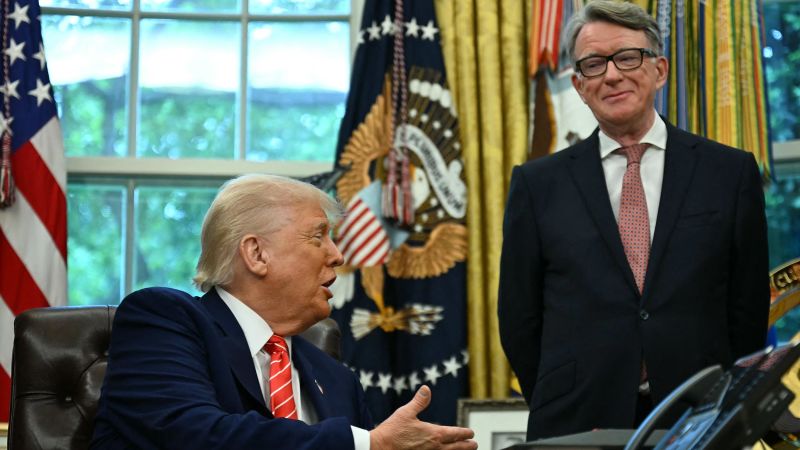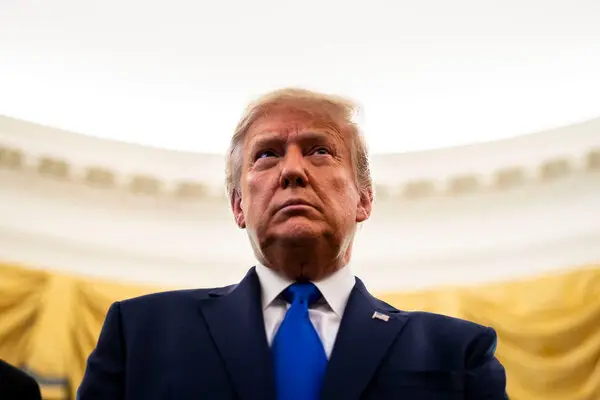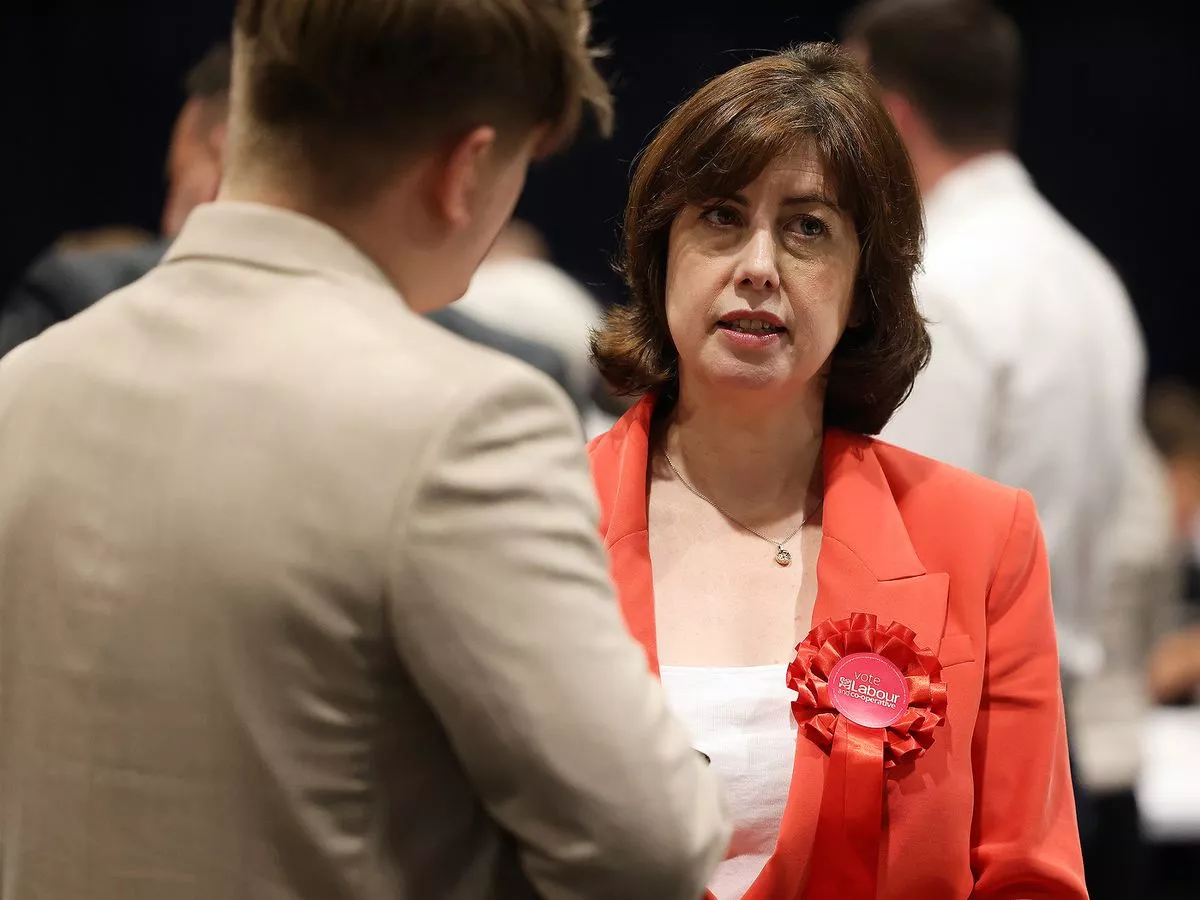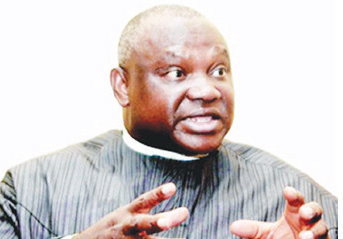
When US President Donald Trump arrives at Windsor Castle for his unprecedented second state visit to the United Kingdom on Wednesday, there will be one notable absentee.
As Trump is greeted by King Charles and Prime Minister Keir Starmer, the diplomat who had a big hand in much of the preparation work could have been expected to be hovering in the background. But that official, the British ambassador to Washington, was fired last week over his links to the convicted sex offender Jeffrey Epstein.
The dismissal of Peter Mandelson – a polarizing figure on the left of British politics for years – threatens to cast a long shadow over the week’s events, making a delicate summit even more difficult for the beleaguered Starmer. What had been billed as a chance for the struggling Labour government to deepen its ties with the US now risks being derailed by questions over Starmer’s judgment in appointing Mandelson – and Trump’s own ties to Epstein.
If that was not enough, the royal hosts have their own Epstein history. Prince Andrew, Charles’ brother, withdrew from public life in 2020, after he gave an interview to the BBC detailing his relationship with the disgraced financier, which led to legal action in the US.
The Mandelson scandal has come at a poor time, says Olivia O’Sullivan, director of the UK in the World program at the Chatham House think tank. “It gives the media something very immediate, scandalous and linked to a big domestic political problem for Trump to focus on during the visit.”
Mandelson was under mounting pressure after US lawmakers released a 238-page scrapbook of letters sent to Epstein, compiled for his 50th birthday, in which the veteran Labour party politician penned a handwritten note, describing the financier as “my best pal.”
Trump is also alleged to have written a message to Epstein in the same “birthday book” from 2003. That sexually suggestive letter features a hand-drawn figure of a naked woman along with what appears to be Trump’s signature mimicking pubic hair. Since the Wall Street Journal first reported the letter in July, Trump has denied writing it, calling it a “fake thing.” His allies said after the letter was released that the signature was not Trump’s.
But Mandelson did not deny the authenticity of his letter, compiled in the same book. Instead, he said last week that he found his words “very embarrassing” to read back, and that he feared more embarrassing exchanges would emerge.
He was right. Mandelson initially stressed that he wrote his birthday message before Epstein’s 2008 conviction for soliciting sex from underage girls, but this defense quickly unraveled after Bloomberg published a slew of emails that showed Mandelson continued to support his “pal” after he was convicted.
“I think the world of you and I feel hopeless and furious about what has happened,” Mandelson wrote. He offered to use his political contacts to help clear Epstein’s name and gave him advice, suggesting he fight back using techniques from Sun Tzu’s “Art of War.”
Mandelson was fired the day after those emails emerged. Britain’s Foreign Office said the new information showed the “depth and extent” of his relationship with Epstein was “materially different” from what was known when Starmer appointed him. “Had I known then what I know now, I’d never have appointed him,” Starmer said Monday.
For Starmer, Mandelson’s dismissal was the second political scandal in as many weeks. Just days before, his deputy Angela Rayner resigned after it emerged she had failed to pay enough property tax on a second home.
But the swiftness with which Mandelson was ejected over his ties to Epstein will only underscore how Trump has tried to downplay his own relationship with the disgraced financier and discourage people from focusing on the matter. Mandelson was due to dine with Trump, Starmer and King Charles III during the state visit; now, the ghost of his political career will loom over the event. White House officials refused to say whether Trump would raise Mandelson’s firing — or his thoughts on a possible new ambassador — during his meeting with Starmer.
Michael Martins, a former official at the US embassy in London, who was involved in the planning for Trump’s first state visit in 2019, told CNN: “Both sides are going to be trying to move on from this during the state visit. Neither will want to talk about it.”
But the British media will make that hard for them, if Starmer and Trump take questions from the press during the visit. The controversy continues to dog the administration back in Washington, particularly on Capitol Hill. Lawyers for Epstein’s estate recently provided more documents to the House Oversight Committee for their investigation into the matter, and more witnesses are expected to testify behind closed doors in the coming weeks.
Starmer will be keen to keep attention the burgeoning trade ties between the two countries. Mandelson helped broker the barebones US-UK trade deal in May, which the two sides have since worked to bulk up.
Starmer on Monday also announced a US-UK nuclear energy agreement, which will make it easier for companies to build new power stations in both countries. A new technology partnership is also likely be unveiled during the visit.
Whether those new deals are enough to distract from the looming Epstein scandal is unclear. Starmer is still facing fierce questions over his decision to replace Karen Pierce, Britain’s well-respected former ambassador, for Mandelson, who has now been forced out of three senior government roles over separate scandals.
In ousting a career diplomat like Pierce for a maverick like Mandelson, Downing Street’s logic was that “they wanted somebody who would be able to manage the very personalist approach of the Trump administration,” said O’Sullivan, from Chatham House.
“They thought that it’s all about personal ties, and (the ambassador) has to be able to manage that court atmosphere. But in the end, it was his personal ties that became too big of a risk.”



